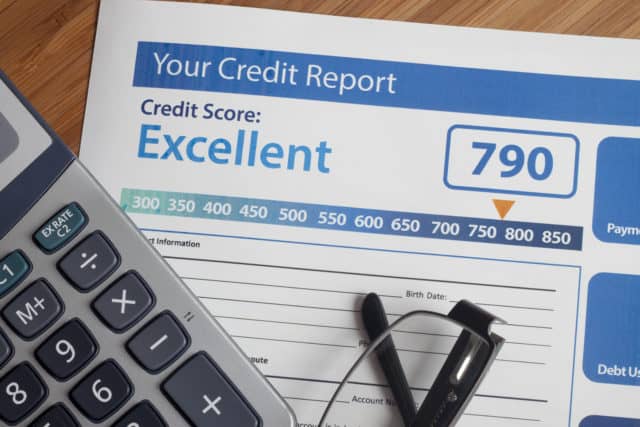Wealthtender is a trusted, independent financial directory and educational resource governed by our strict Editorial Policy, Integrity Standards, and Terms of Use. While we receive compensation from featured professionals (a natural conflict of interest), we always operate with integrity and transparency to earn your trust. Wealthtender is not a client of these providers. ➡️ Find a Local Advisor | 🎯 Find a Specialist Advisor

Individuals often need cash to pay for items like a down payment on a new home, unexpected medical bills, or just simply to consolidate debt. Two common options to shore up money are tapping your 401(k) plan’s assets or taking out a personal loan. While neither choice is indicative of an ideal financial situation, there are advantages and disadvantages with both options that you should consider.
Financial advisors should be well-versed in assisting clients who need money to pay for unexpected bills or large one-off items. Cash flow planning is becoming a bigger piece of good financial planning. Helping an individual or couple analyze whether a 401(k) loan or a personal loan is a better choice can go a long way in building better relationships.
What is a 401(k) Loan?
A 401(k) loan is simply borrowing money from yourself. A participant pulls money from an employer’s 401(k) plan to pay for any number of items. You must then pay yourself back with interest. Workers must check with the employer as not all companies offer 401(k) loans. Plans that allow them might have unique requirements regarding what a participant can borrow. In general, however, individuals can request a loan of up to $50,000 or 50% of the account’s vested balance (whichever is less). The maximum term of a 401(k) loan is up to five years.
The upshot with 401(k) loans is that the money tapped can be used for almost any purpose. People commonly take out a 401(k) loan for home improvements, a down payment on a house, consolidating high-interest debt, paying off an unexpected medical bill, or even starting a business. It’s not free money, though. You must pay back the amount borrowed with interest, but the rate is often low versus other financing options. Repayment is often executed through payroll deductions with an employer.
Taking a 401(k) loan might not be ideal since you might forgo stock market gains. Moreover, the strategy is not optimal from a tax perspective as the interest repayment is subject to income tax. Unlike what some outlets report, though, the amount borrowed from a 401(k) does not face double taxation.
What is a Personal Loan?
A personal loan is more straightforward than the policies of a 401(k) loan. With a personal loan, you borrow money, typically from a bank, online lender, or credit union. It’s either an unsecured or collateralized form of borrowing. It is common for individuals who have high-interest credit card debt to opt for a personal loan to save on total interest costs.
A personal loan’s interest rate depends on a variety of factors including the amount borrowed, the borrower’s credit history, and the lender’s requirements. It’s a good rule of thumb for individuals with higher credit scores to take out personal loans since they will receive better interest rates.
401(k) Loan vs. Personal Loan: What’s Better for You?
Determining whether a 401(k) loan is better than a personal loan can be challenging, but a step-by-step approach can help you make the right call.
401(k) Loan Advantages and Disadvantages
A 401(k) loan might be the better choice for individuals with a low credit score and who have a sizable account balance. Borrowing from yourself sometimes features a more favorable interest rate and you should consider that you are repaying your future self, not a lender looking to score a profit. Also, keep in mind your credit score won’t be negatively impacted by an additional credit pull.
There are disadvantages to a 401(k) loan. At worst, the balance is treated as a taxable withdrawal (with a 10% early withdrawal penalty per the IRS) in the event you cannot repay the loan. More troubles come if you leave your employer since repayment is due as a lump sum. Finally, you might miss big stock market gains when you sell investments, so your opportunity cost could be significant.
Personal Loan Advantages and Disadvantages
A personal loan is a viable choice for those with high credit scores who can secure a favorable interest rate. Another upshot is that you can tailor the loan terms to your financial situation. Additionally, payback policies are often more flexible compared to the stringent rules of a 401(k) loan. Finally, there is no 10% early withdrawal penalty risk with a personal loan.
The downsides of a personal loan are considerable, however. They often feature high-interest rates which can dig people deeper into a debt hole. To make matters worse, there are often upfront fees and then prepayment penalties.
ASK THE EXPERTS: Should You Borrow via a 401(k) Loan or Personal Loan?
We asked financial advisors in the Wealthtender community to offer their guidance on when they might advise their clients to choose a 401(k) loan or a personal loan. Here’s what they said.

A 401(k) loan can often make a lot of sense for business owners. Here’s why.
One of the biggest downsides of a 401(k) loan is the risk of having to repay it early if you leave your job. If you leave you job with an outstanding 401(k) loan, you have until the tax-return-filing due date for that tax year, including any extensions, to repay the outstanding balance of the loan, or to roll it over into another eligible retirement account. If you can’t repay it, the amount of money you still owe will be considered a distribution and could be taxed and subject to early withdrawal penalties of 10%.
However, as a business owner, you have much more control over your employment since it’s your business. You can’t be fired or laid off like you can at a regular job. Because of this, risk of having to pay the loan back early is almost zero (assuming you stay in business). Because of this, a 401(k) loan can be a very attractive option for business owners, including one-person businesses with a Solo 401(k).
In general, one advantage of a 401(k) loan is that you are “paying yourself back”, rather than paying interest to an outside lender.
Michael Reynolds, CFP®, CSRIC®, AIF®, CFT-I™ | Elevation Financial

In general, I don’t ever recommend clients take loans on their 401k’s. The main reason is psychological in that clients then see it as a bank account they can use. Especially once they have found out how simple it usually is to take a loan the 401k. It can become dangerous if they don’t pay it back because come tax time they get taxed and may face an early penalty. The other cons to using a loan on a 401k is that you lose out on market growth for your retirement which is a major con. The last con I’ll share is that clients taking these loans are often looking for quick money and therefore may sell their investments at inopportune times in the market.
The pro to doing a loan is that the interest you are charged is paid back to yourself for the loss of growth in the market so in a way it is an interest-free loan. When I have seen a loan used correctly from a 401k is when a client needed to purchase a new home before they sold their current home. It provided them with a downpayment for the new home and then they were able to pay back the loan within a few months after their old home sold.
Nathan Mueller, MBA, CFP® | Blackbird Finance

The advantages of the 401k loan include no credit check, and they usually have a very decent (low) interest rate. That interest also gets paid back to your own 401k plan instead of a bank. Finally, I’ve never seen a 401k loan reported to a credit bureau so it could be a plus for those who are working through difficult credit situations.
On the downside, some might want the loan to be reported and count toward improvements in their credit score. A personal loan will do that. Depending on the size of the need, most plans limit your 401k loan to half of your vested balance. This may prove to be insufficient to cover total loan needed. In these cases, I see some clients taking a 401k loan for what they can, then using a personal loan to supplement the balance needed.
Dean Lyman, CFP, CCFC | Your Financial Partnership

1) Taking a loan from your 401k during a down market can make good sense if you’re responsible about paying the loan back on time. Since you’re required to pay yourself interest, it’s possible your ending 401k balance could be higher than if you hadn’t taken the loan.
2) A personal loan might be a better choice if your job isn’t secure since you’d have to pay the 401k loan balance back in full or risk a taxable distribution with potential penalties if you leave your job for any reason. Also, for loans needed for longer than five years, personal loans offer more flexibility.
Richard J. Archer, CDAA, CFA, CFP®, MBA | Archer Investment Management
Conclusion
Individuals diligent about their finances might find a 401(k) loan a more attractive financing choice versus a personal loan. Every person’s situation is unique, though. That makes it even more important to work with an experienced financial planner who can recommend the right solution. Knowing the ins and outs of these two loan types can go a long way toward reducing risk and saving on interest costs.
Are you ready to enjoy life more with less money stress?
Sign up to receive weekly insights from Wealthtender with useful money tips and fresh ideas to help you achieve your financial goals.

About the Author
Mike Zaccardi, CFA®
Mike is a freelance writer for financial advisors and investment firms. He’s a CFA® charterholder and Chartered Market Technician®, and has passed the coursework for the Certified Financial Planner program.
Learn More About MikeWealthtender is a trusted, independent financial directory and educational resource governed by our strict Editorial Policy, Integrity Standards, and Terms of Use. While we receive compensation from featured professionals (a natural conflict of interest), we always operate with integrity and transparency to earn your trust. Wealthtender is not a client of these providers. ➡️ Find a Local Advisor | 🎯 Find a Specialist Advisor







